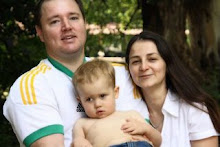Autism and its effects on siblings, family members and the community
April 25, 2010 10:03 PM
By Pamela Gross Downing/Special to The Herald
"Tommy" walked down the aisle at his favorite store, Target.
He spotted what he was after, a small toy elephant. Tommy loves elephants. He turned to his parents and his sister "Jenny".
"Do you see the elephant, mom?" His sister groaned; she knew what was about to happen. Her brother not only loved to talk about elephants, he was fixated on them. He knew everything about them.
Tommy took a deep breath and said, "Did you know that there are two types of elephants, Jenny? There is the African elephant and there is the Indian elephant." Tommy continued with his one-sided conversation.
"The African elephant is almost hairless. Their ears are very big and look like fans. The African elephant has two little fingers on the tip of its trunk. They really aren’t fingers, though. They just look like them. Indian elephants only have one finger.
"Jenny," the boy said, "guess what?" He was getting more excited. "Jenny, Jenny, did you know that elephants are herbivores. That means …"
Tommy’s parents and his sister had always been very proud of him. He was a gifted child diagnosed with Aspergers Syndrome. His family understood that meant that Tommy was on the autism spectrum. He would have to face many of the same challenges that other children with autism spectrum disorders (ASD) had to go through.
Tommy’s constant fixation had become difficult for Jenny to deal with, especially since he was now 18 years old. As a sibling, Jenny was going through her own challenges of having a brother with ASD.
Having a brother or sister with autism face can create challenges within the family. Constant communication about the issues facing siblings of ASD children is extremely important. For example, 6-year-old "Jack" often would hit his sisters and brothers. The siblings were afraid to challenge Jack because they thought he couldn’t help himself.
If a behavior is unacceptable for the siblings, it is unacceptable for Jack, too. In Jack’s case, an individual behavior plan was set in place for him. The family learned to have open discussions on questions they had, not just about Jack but autism in general.
When children are very young, begin talking with them about a brother or sister who has autism.
Ideally, a family will be open and discuss what to expect as the ASD child grows older. When friends come over to play, consider including them and their parents in discussions about autism. Never be afraid to talk to friends and families about what autism spectrum disorders are and their impact on your specific child and family.
Sadly, even today, it is not uncommon for parents of children with autism to sometimes have other family members, including medical professionals, blame them for the child’s diagnosis.
This misinformation only emphasizes the need to educate and explain what autism is to everyone in our community, beginning with those in our own home.
Playtime is an important time for siblings to be with their own friends. There will be times when it is appropriate for the child with autism to be included in playtimes, especially when the siblings are younger.
"Annie," just 5, is extremely close to her brother "Eli." When her friends come over, she has chosen to include her brother in their play. Her friends have learned to accept Eli into their activities. This has helped him learn how to interact more appropriately with his peers.
In Annie’s case, her parents and Eli’s teacher have worked with her to help Annie feel confident about her own abilities and her brother’s.
However, it also is important that brothers and sisters of special children have their own time, not only with friends, but with their parents as well. This may not always be easy or even possible. Yet, with assistance from friends and family, a special time for the siblings and their parents can be built into a weekly schedule.
Brothers and sisters also provide wonderful role models for language development and social peer growth. As the children grow older, a variety of different issues will occur.
Today, there are many websites, such as http://austimspeaks.org, to help siblings and families with questions on a variety of situations.
Pamela Gross Downing, a special education teacher, can be contacted at downpamg@aol.com.
Subscribe to:
Post Comments (Atom)




.jpg)






















1 comment:
Good article, I am dealing with a child that has two siblings with autism. It is tough on the child, that is for sure. We are going to a group for kids with siblings that have autism.
Autism Information Gateway
Post a Comment